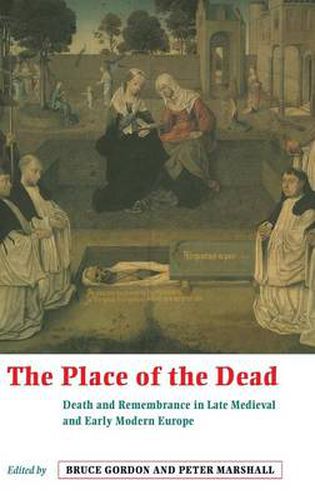Readings Newsletter
Become a Readings Member to make your shopping experience even easier.
Sign in or sign up for free!
You’re not far away from qualifying for FREE standard shipping within Australia
You’ve qualified for FREE standard shipping within Australia
The cart is loading…






This volume of essays represents the first comprehensive treatment of a very significant component of the societies of late medieval and early modern Europe: the dead. It argues that to contemporaries the ‘placing’ of the dead, in physical, spiritual and social terms, was a vitally important exercise, and one which often involved conflict and complex negotiation. The contributions range widely geographically, from Scotland to Transylvania, and address a spectrum of themes: attitudes towards the corpse, patterns of burial, forms of commemoration, the treatment of dead infants, the nature of the afterlife, and ghosts. Individually the essays help to illuminate several current historiographical concerns: the significance of the Black Death, the impact of the protestant and catholic Reformations, and interactions between ‘elite’ and ‘popular’ culture. Collectively, by exploring the social and cultural meanings of attitudes towards the dead, they provide genuinely original insight into the way these past societies understood themselves.
$9.00 standard shipping within Australia
FREE standard shipping within Australia for orders over $100.00
Express & International shipping calculated at checkout
This volume of essays represents the first comprehensive treatment of a very significant component of the societies of late medieval and early modern Europe: the dead. It argues that to contemporaries the ‘placing’ of the dead, in physical, spiritual and social terms, was a vitally important exercise, and one which often involved conflict and complex negotiation. The contributions range widely geographically, from Scotland to Transylvania, and address a spectrum of themes: attitudes towards the corpse, patterns of burial, forms of commemoration, the treatment of dead infants, the nature of the afterlife, and ghosts. Individually the essays help to illuminate several current historiographical concerns: the significance of the Black Death, the impact of the protestant and catholic Reformations, and interactions between ‘elite’ and ‘popular’ culture. Collectively, by exploring the social and cultural meanings of attitudes towards the dead, they provide genuinely original insight into the way these past societies understood themselves.